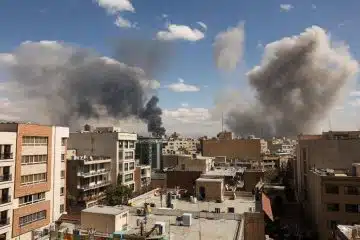Food safety key for festival planners, cooks
January 6, 2011
By David Eck
ARCHDIOCESE — At Our Lady of Lourdes Parish festival each summer cooks in the food booth use three freezers and two refrigerators to keep the burgers, chicken and other foods cold before they hit the grill. A hand washing station with soap and water is nearby, and people handling money are separated from those handling food.
The scene is similar at St. Aloysius Parish in Shandon, which serves a chicken dinner during the summer festival and a turkey dinner every fall.
“We have a big walk-in cooler,” said Mary Rigling, who has been active with St. Al’s festival for 30 years. “Anything that needs to be kept cool can be kept cool which I think is a big safety factor. Obviously, we make sure everything we use is clean.”
It’s all part of a concentrated effort to keep the food served at the festival safe. For parishes and festival organizers serving food that’s clean, fresh and fully cooked is key as parishes look to limit their liability during the festival.
“It’s one of your most susceptible liability times,” said Ken Schultz, business manager at St. Jude Parish in Bridgetown. “I’m an active crusader on liability issues,” Ohio law exempts fund-raising food booths operated by churches on church property from having a license, but county public health representatives encourage festival organizers to still follow guidelines for food safety. Food vendors who share in the proceeds typically require a license.
“We ask everybody to go ahead and fill out a temporary [license] application ahead of time,” said Brian Williamson, chief of environmental services at the Butler County Health Department. “If all the money is going back to the church and you’re on the church grounds, you have a very good chance of meeting all the details of the exemption.”
Health inspectors can still inspect food booths and offer suggestions to decrease the likelihood of a food-borne illness regardless of the license exemption. That’s why it’s important for parishes to communicate with their local health department when festivals are being organized, inspectors say.
“If we see something we can recommend to promote food safety we are interested in making those recommendations,” Williamson said. “In most cases the larger events have a combination of exempted booths and those that are already licensed.”
Inspectors usually review the equipment in the booths, procedures, menu, cooking methods and temperatures. Sanitizing procedures, utensils used for cooking and hand washing techniques are usually inspected.
Food safety guidelines include keeping hot food at 135 degrees or warmer, and cold food 41 degrees or below, separating cutting boards to reduce cross-contamination and good hygiene. Most health departments have a food safety section on their websites.
“We always still recommend that anyone serving food follow our public health guidelines,” said Alan Pierce, a supervisor at Dayton and Montgomery County Public Health. “As far as I can tell churches have been very cooperative over the years. We’re certainly [available] if there are any questions at all.”
Hamilton County health inspectors also encourage festival organizers to notify them of the festival so an inspection can be arranged. Jeremy Hessel, director of environmental health for Hamilton County Public Health said the inspections help “to assure the public and keep the festival safe for everyone.”
Schultz, who also owns a meat store, said the some of the volunteers at St. Jude’s festival have their own food businesses and are well aware of the safety standards. At many festivals the same group runs the food booth each year and are versed in the precautions. Meats such as sausage, poultry and beef require the most care.
“Most of all its common sense,” Schultz said. “The biggest thing is you have to watch the brats. Because there’s a casing on them, if they sit out too long, they tend to overheat, which brings bacteria into the meat.”
The safety measures cooks take during festivals are typically what they take when they prepare dishes in their own kitchens.
“If you have a problem, it will hinder future meals,” Rigling said. “You’ve got to take precautions first so you can have a nice meal.”
David Eck can be reached at [email protected].









